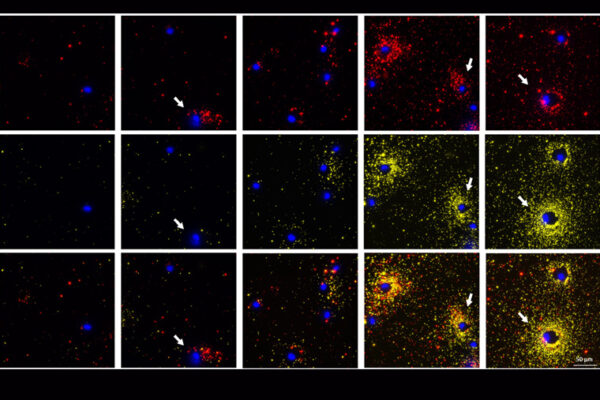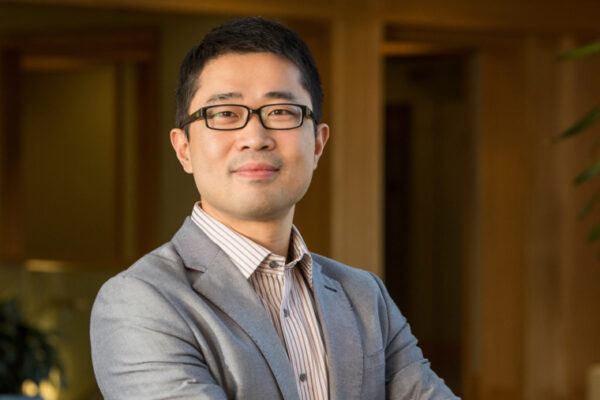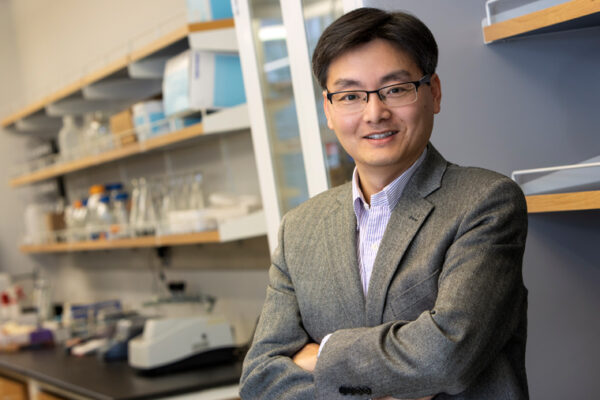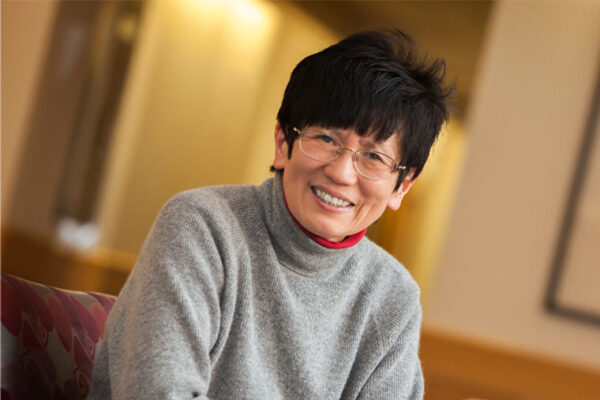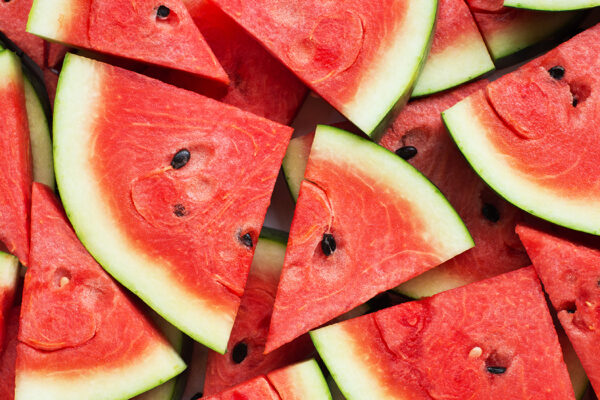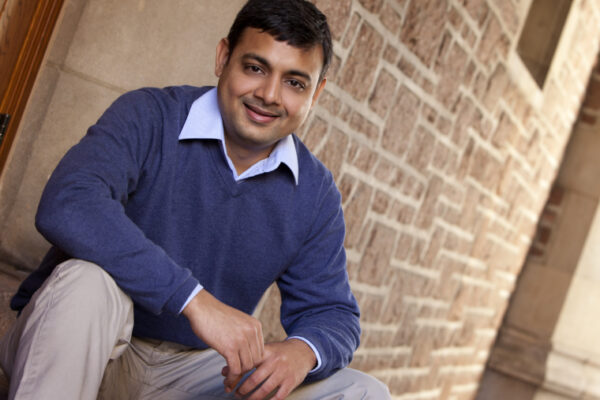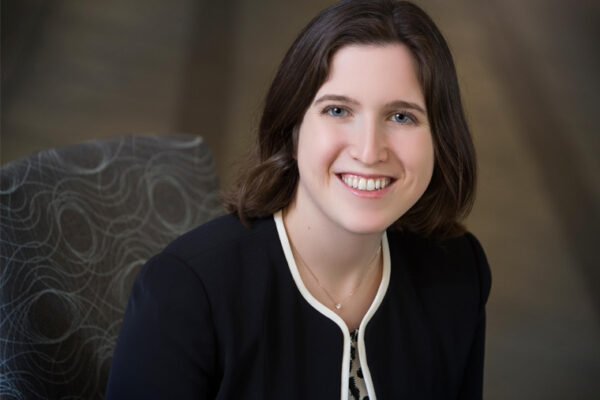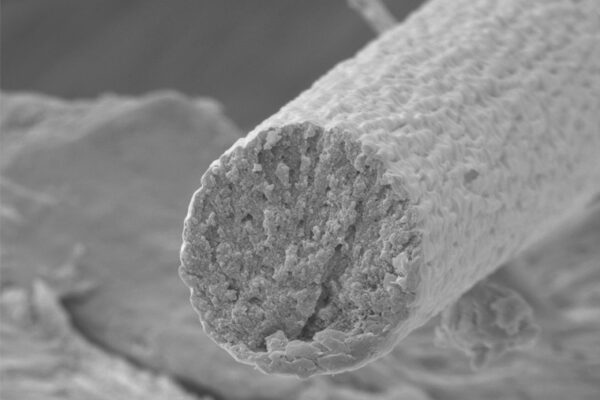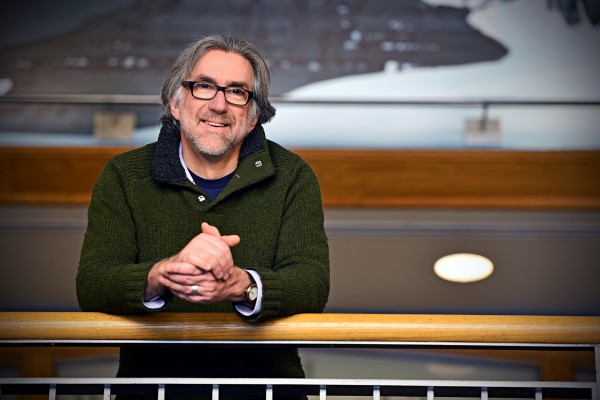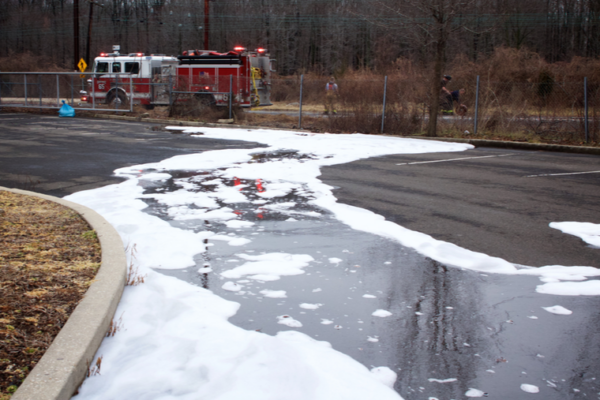‘Simple yet powerful’: Seeing cell secretion like never before
An interdisciplinary team led by the lab of Srikanth Singamaneni has developed a new way to better visualize the proteins secreted by cells.
Wang receives funding for preterm birth research
The National Institutes of Health (NIH) has awarded a five-year $1.67 million grant to Chuan Wang, assistant professor at the McKelvey School of Engineering, for research on preterm birth. Wang and an interdisciplinary team will develop soft sensors with stretchable electrodes to generate 3D maps of the uterine surface and better understand contractions.
He named Water Environment Federation fellow
The Water Environment Federation has named Zhen “Jason” He a 2022 fellow.
Pairing imaging, AI may improve colon cancer screening, diagnosis
A new technological pairing from the lab of Quing Zhu at the McKelvey School of Engineering may lead to an improved diagnostic tool for colorectal cancer.
Seedy, not sweet
Biologist Susanne Renner in Arts & Sciences investigated the oldest known seeds from watermelon relatives. Her research team shared two new genomes of the ancient seeds and described how Neolithic humans in Libya likely used the seeds, not the bitter flesh, from the melons.
Cell memory’s role in migration to new tissues explored
A grant from the National Science Foundation will allow Amit Pathak to take a closer look at how certain cells use priming and memory to respond to new tissues.
Parker receives grant to study mechanics behind ‘dicamba drift’
Kimberly Parker at the McKelvey School of Engineering will use a grant from the Herman Frasch Foundation for Chemical Research to better understand dicamba volatilization.
NSF grant to help Zhang lab build better muscle with synthetic biology
Fuzhong Zhang, at the McKelvey School of Engineering, will use a National Science Foundation grant to more closely study the muscle fiber titin, along with other exotic materials.
McKinnon receives funding from NASA, JPL
William McKinnon in Arts & Sciences received a $164,255 award from NASA and the California Institute of Technology’s Jet Propulsion Laboratory to support his work on a project to study Jupiter’s moon Europa.
New bioremediation material can clean ‘forever chemicals’
The McKelvey School of Engineering’s Joshua Yuan and collaborators have developed a plant-based material to help safely clean up harmful “forever chemicals.”
Older Stories
